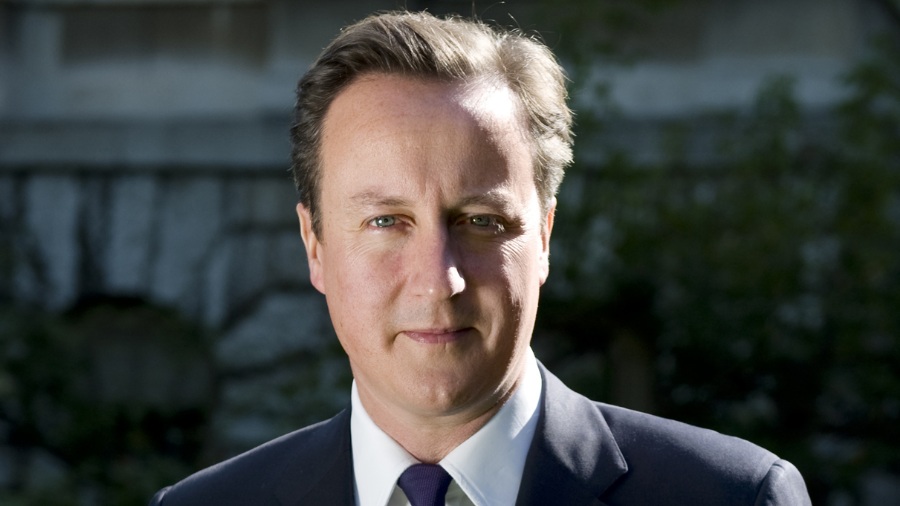David Cameron doesn't need your emails
If you've nothing to hide, there's still plenty to fear

Good news for anyone concerned by the government's intrusive plans for online surveillance: the Lib Dems are against them!
That's fantastic, because it means they'll defeat the plans in the same awesome way they defeated the, er, Digital Economy Bill, and, um, tuition fees, and, er, evil bankers, and, ah, the wholesale destruction of the NHS as we know it and OH GOD WE'RE ALL DOOMED!!!!!!
So why is the government so keen on a system it railed against when Labour proposed it a few years back? Well, yes, "bastards" is one explanation. But there's a bit more to it than that.
What's happening here is a classic bit of political manoeuvring. What's supposed to happen is this: the security services ask for the power to do anything they like, plus some satellites with giant lasers and hats that can be used as guns, because that's what the security services are supposed to do.
The government then tells the security services to get stuffed because we can't afford gun hats, and because privacy is a fundamental human right.
Like Labour before them, the Tories have forgotten to do their bit. Instead of saying "get stuffed, you power-crazed doom-mongers!" they've said "Gun hats? What a brilliant idea!"
Mind you, Nick Clegg is "totally opposed" to the idea of governments reading our emails. OH GOD WE'RE ALL [you've done that bit - Ed].
Sign up for breaking news, reviews, opinion, top tech deals, and more.
Spies like us
As with all intrusive legislation we're told that if we have nothing to hide, we have nothing to fear. It's ironic, then, that the government has been doing its very best to get this legislation through in secret. If we have nothing to fear, why were they trying to hide it?
All that's changed since Labour tried and failed to push this one through is that the government has decided to let the data be stored in multiple locations rather than in a single database.
There are several reasons to worry about the scheme. The most mundane one is cost: somebody's going to have to pay to set it up, and the Home Office reckons it'll cost £2 billion in the first ten years. That's a lot of money for a country that's so broke it's slashing benefits for the most vulnerable and closing libraries, and of course such projects always end up with massive overspends.
The bigger concern, though, is that when it's set up, it'll be used for the wrong things.
Lies, damned lies
It's not as if that hasn't happened before. The Regulation of Investigatory Powers was brought in to fight crime and terrorism, and ended up being used to spy on parents and dog owners to see if they were cheating on school admission criteria and failing to clean up after their dogs respectively.
The Terrorism Act ended up used to eject hecklers from the Labour party conference and has been repeatedly used to stifle legitimate protests against such nice people as arms dealers. We already know that as far as the police are concerned, protesters such as the Occupy movement are terrorists too.
When Teresa May says that "Such data has been used in every security service terrorism investigation and 95 per cent of serious organised crime investigations over the last 10 years," she doesn't say whether that data use was actually justified, let alone whether it helped. You might as well say that shoes prevent terrorism, because 100% of anti-terrorism investigators wear them.
So when the security minister James Brokenshire says that the "emphasis" will be on solving crime, I'm not filled with an enormous amount of confidence. As the Open Rights Group points out, the Home Office says that "communications data is vital to all law enforcement." Not some. All.
Invoking the old bogeymen of terrorists and kiddie fiddlers - "Only suspected terrorists, paedophiles or serious criminals will be investigated" - Teresa May says that "data like this has already helped lock away murderer Ian Huntley. It helped catch the gangland thugs who gunned down Rhys Jones."
If that's the case, why do the authorities need more powers?

Contributor
Writer, broadcaster, musician and kitchen gadget obsessive Carrie Marshall has been writing about tech since 1998, contributing sage advice and odd opinions to all kinds of magazines and websites as well as writing more than twenty books. Her latest, a love letter to music titled Small Town Joy, is on sale now. She is the singer in spectacularly obscure Glaswegian rock band Unquiet Mind.